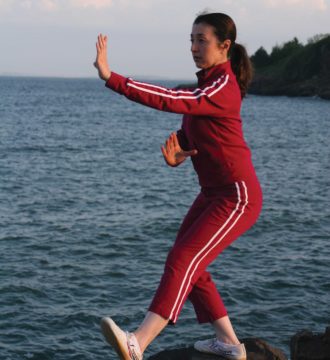You’re a procrastinator. That doesn’t make you a bad person. It doesn’t even make you a flawed person. In fact, it makes you human.
Plenty of self-help gurus and best-selling authors will tell you it’s simple: “Break your task into small pieces” or “just get started.” Unfortunately, that kind advice puts all the pressure on the procrastinator who, in most cases, is already feeling miserable about putting off the task at hand.
“If we could ‘just get started,’ we wouldn’t have a procrastination problem,’ says Timothy A. Pychyl, Ph.D., director of the Centre for Initiatives in Education and associate professor of psychology at Carleton University in Ottawa, Ontario. “That’s like telling a clinically depressed person to ‘just cheer up.’”
Pychyl, who founded Carleton University’s Procrastination Research Group in 1995, initially set out to study people’s relationships with their personal goals. Early in his research, he noticed a correlation between the difficulty study participants had with “just getting started” and how that procrastination negatively impacted their overall wellbeing.
“Procrastination is not a time management problem; it’s an emotion management problem,” says Pychyl. “You can break a task into a hundred steps, but when you get to step one, you still don’t want to do it.”
Not to be confused with purposeful delay or inevitable delay, procrastination, Pychyl says, is the voluntary delay of an intended action despite expecting to be worse off for the delay.
Think about that for a second. When we procrastinate, we are willfully making a decision to avoid a task even when we understand avoiding that task will have a negative impact on our wellbeing. Who among us would intentionally choose to feel bad?
Turns out, we’re not. Instead, we are choosing to avoid the negative emotions we have about the task (fear, resentment, boredom, uncertainty … the list goes on) by avoiding the task altogether and turning out attention to feel-good mini-tasks we can control: cleaning the refrigerator, watering the plants, paying bills. Sound familiar?
But wait. There’s more. Those of us with a tendency to procrastinate are likely wired that way. Research shows procrastinators have a larger amygdala volume than non-procrastinators. Stick with me. This is about to get good.
The amygdala is the part of our brain that processes emotions. (Think fight-or-flight.) With a larger amygdala volume, procrastinators feel the negative emotions attached to a task more intensely. Human nature leans toward not wanting to feel negative emotions, so we do whatever we can to shut them down — including avoiding the task at hand. And around we go.
So, here’s the fix.
“We have to remove the attachment from a focus on emotion to a focus on action,” says Pychyl. “It’s a game changer.”
Sounds easy, right? Okay, maybe not so easy.
“Once we get started, the perception of the task changes,” says Pychyl. “Our perception of ourselves changes. We begin to realize, ‘Hey, this isn’t as bad as I thought. I’m actually pretty good at it.’”
3 Handy Tools for Keeping Procrastination Tendencies at Bay
Recognize and understand the thought process, then intentionally take steps to shift your focus from emotion to activity.
What do you do when you get a cramp during an extended yoga pose? You breathe through it, right? In this case, breathe through and release your anxiety and self-judgment. Research shows that just eight weeks of meditating to release the emotions associated with procrastination shrinks the amygdala connection.
Conscious or not, we all have cues in our lives. The whistle as the 5 p.m. train rolls by signals wine time. Setting the spin bike at the gym to your specifications signals the start of a workout. Create a cue to start a task. When I do X, then I will do X. I will make tea, then I will open my laptop.



 3 min read
3 min read



